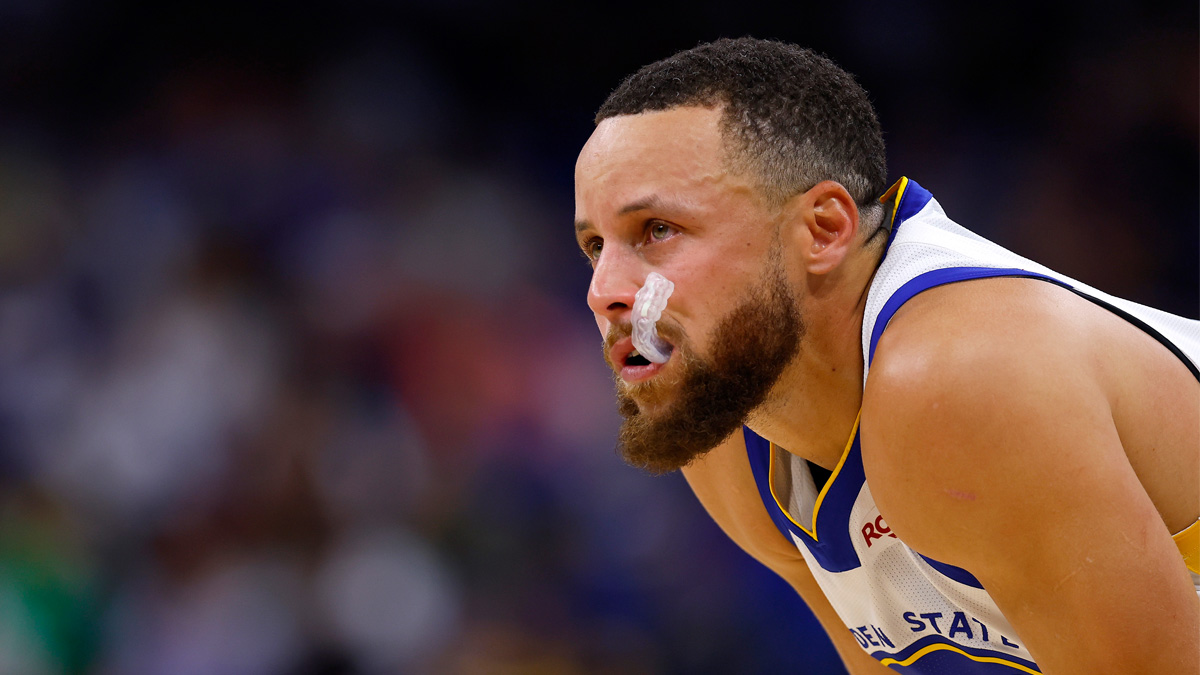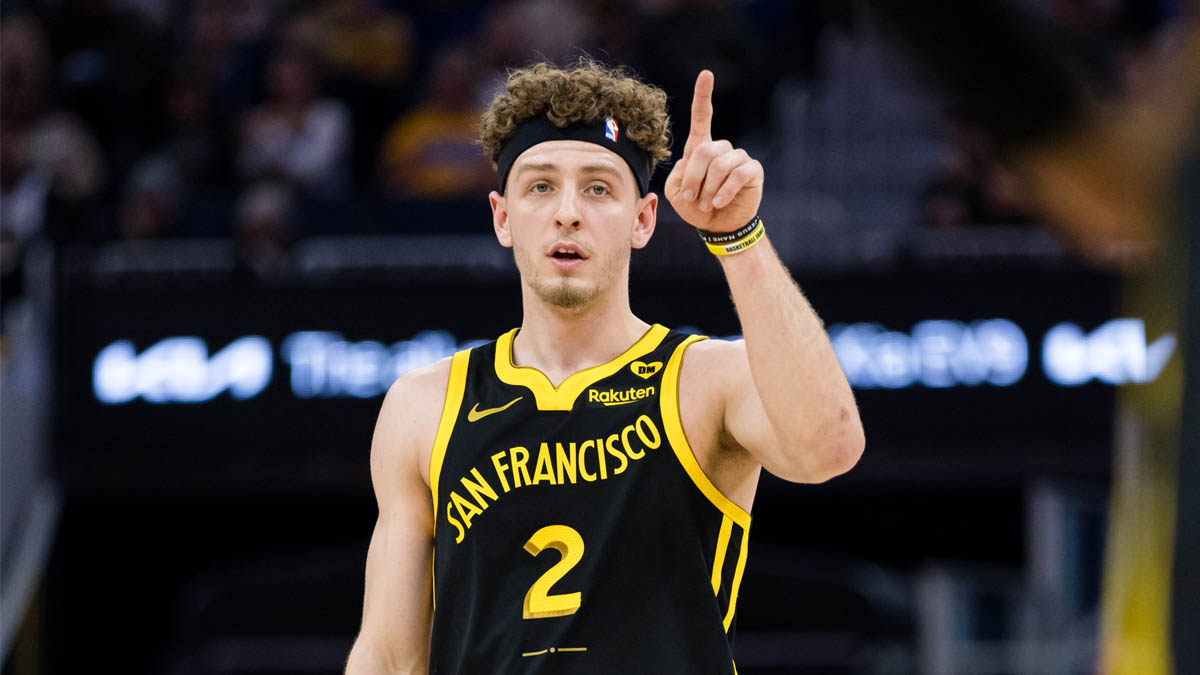OAKLAND — News of rapper Nipsey Hussle being shot in a Los Angeles strip mall infiltrated the Warriors’ Oracle Arena locker room about 45 minutes before Sunday's 137-90 win over the Charlotte Hornets.
First, there were murmurs in the far corner as Kevin Durant, Quinn Cook and others looked at their phones, checking for updates on Twitter. Minutes later, DeMarcus Cousins came out of the adjoining training room, silent, and showed players a screenshot of Hussle on the ground with his white du-rag drenched in blood, exposing the damage to his head.
Then, at 5:08 p.m., 32 minutes before the scheduled 5:40 tip-off, NBC News reported Hussle's death, the result of multiple gunshots in front of The Marathon Clothing store he owned, casting a shadow on one of the biggest wins of Golden State's season.
Stay in the game with the latest updates on your beloved Bay Area and California sports teams! Sign up here for our All Access Daily newsletter.
"I thought it was fake at first," Jordan Bell said. "I started seeing more and more, so I went on Twitter and starting looking for verified accounts tweeting about it."
"You saw pictures of him shot in the head and all that s***. I don't know, it just f***** me up," Bell continued. "And finding out he died right before the game was tough, really tough."
For the Warriors’ roster, it's not hard to see why Hussle's death reverberated throughout the locker room.
Born Ermias Asghedom, Hussle was raised in the Slauson section of Los Angeles, eventually joining the Rolling 60's Crip set and putting out his first mixtape in 2005. However, as a rapper, he didn't rap about jewelry and spoils that come with the music industry. Instead, he promoted a business-first message, selling physical copies of the mixtape, Crenshaw, for $100, which caught the attention of Jay-Z, who bought 100 copies.
Golden State Warriors
Before his career gained traction, Hussle sold mixtapes in an L-shaped strip mall on the corner of West Slauson and Crenshaw Avenues. Years later, he bought the complex, with his Marathon Store as its anchor tenant.
In addition to the complex, Hussle partnered with Vector90, a co-opting space where youth can take science, technology and mathematics classes in inner cities. Last year, he released his Grammy-nominated debut album, Victory Lap, in a partnership with Atlantic Records.
Before his death, Hussle was slated to meet with the Los Angeles Police Commissioner Steve Soboroff and Police Chief Michael Moore at the Roc Nation offices to "talk about ways he could help stop gang violence and help us help kids."
For many on Golden State's roster, Hussle provided an example of a person who looked like them, came from their communities, and who used his access to uplift undervalued, impoverished neighborhoods from which they came.
"He was setting examples with his actions. He was showing kids how to get money and keep money," said Bell, who was born in Los Angeles and went to school in Long Beach. "I was like damn, I'm not buying no jewelry, I'm buying a house."
"Nip was doing it in his lane, where a lot of people can relate to his struggle," Shaun Livingston added. "Making it out, making something from nothing and then going back to where nothing was, and then going back and giving back to show his peers and the culture and young African Americans that you can be businessmen. He said it in his music. You can take advantage of your business, get your own rights, publishing, all that. Like he wasn't just speaking it. He was living it."
Remnants of Hussle's influence ring throughout Golden State's locker room. Cousins, perhaps Hussle's biggest fan on the team, tattooed the rapper’s “TMC” mantra on the back of his neck while he was a member of the Sacramento Kings. This season, when he returned from a torn Achilles, Cousins wore a player-exclusive Puma Clyde Court with "The Marathon Continues" along the heel cap.
"A guy that came up from the struggle. Made it out," Alfonzo McKinnie said. "Became one of those guys to go back and drop knowledge to everybody on how to come up from that. That's just the most inspiration that I got out of it. Just listening to him speak in general."
A year ago, Hussle traveled to Oracle to watch the Warriors play the Milwaukee Bucks, with an obligation to appear on Stephen Curry's “5 Minutes from Home” web series. Following Golden State’s 116-107 loss, Hussle and Curry hopped in a sprinter van in route to Oakland's MOMOlicious food truck, talked about Curry's interest in buying the NFL's Carolina Panthers and even Hussle's look on parenting in a conversation that stuck with the Warriors guard.
"What he stood for in his message," Curry said. "He obviously represented his community and where he's from and his background. Turning that platform into something positive, that stuff that he was doing with his money and investments and his time, he was trying to educate people and giving back to the community. Really just putting all his resources into something truly impactful. Just the way he represented his family and talked — it’s all good stuff."
Hussle's death was reported minutes before the team ran on the court Sunday. Following the news, the team went to the center of the locker room in prayer, ran out and prepared for the eventual blowout.
During the fourth quarter, with the Warriors up as much as 47 points, Oracle Arena DJ D Sharp spun Hussle's hit single “Last Time That I Checc'd” during a timeout, prompting Durant and Draymond Green to crip walk in tribute, while Livingston waved a towel, providing the last ode to the fallen rapper, one that will leave a lasting impact on this iteration of the Warriors.
"They should play that every time just for him going to the game and showing love to us as players, so they should play that during every game," Livingston said. "Keep that man alive. Let's celebrate him."


